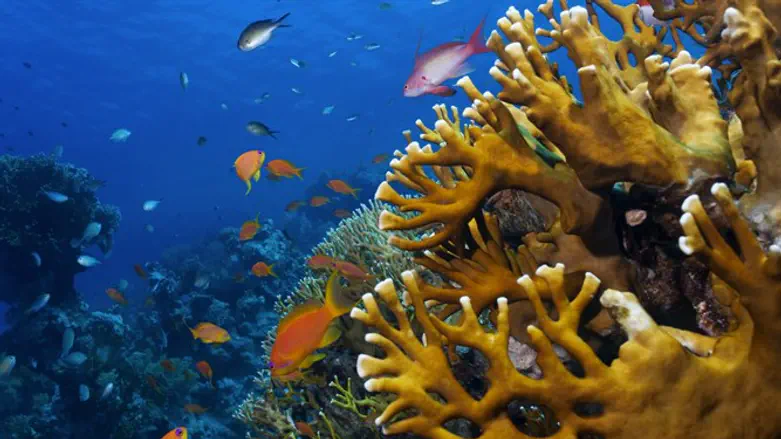
The Red Sea Reef Foundation (RSRF) has awarded research grants to five scientists from Israel and Jordan – including two from Bar-Ilan University -- who are studying the Red Sea's coral reef, one of the world’s largest marine refuges from climate change.
Selected projects include using deep neural networks to derive data on coral reef fish populations, characterizing corals’ changing microbiome, and developing coral bioindicators of heavy metal pollution in seawater and of coral resilience to stress from rising ocean temperatures.
Naama-Rose Kochman, a PhD candidate in Prof. Maoz Fine's lab at Bar-Ilan University's Goodman Faculty of Life Sciences and the Interuniversity Institute for Marine Sciences in Eilat, and Natalie Levy, a PhD candidate in Prof. Oren Levy's Laboratory for Molecular Marine Ecology at the Bar-Ilan Goodman Faculty, are among the five whose projects were selected.
Seeking to put a price tag on global warming for reef building corals, Naama-Rose Kochman is studying coral energetics under thermal stress, looking at how much energy a coral expends in order to withstand thermal anomalies. The primary aim of Natalie Levy's research is to understand if there is an inherent difference between the ecobiomes (invertebrates, microbes, and associated nutrients) of healthy and degraded coral reefs, and if a healthy reef ecobiome provides optimal nutrients for overall coral health, physiology, and growth. She hopes to understand whether a healthy reef ecobiome could provide a better environment for corals to recover from stressors or to seed degraded reef ecosystems, which could be used as a tool to aid reef managers or restoration programs.
With 90% of the world’s coral reefs expected to be severely degraded by mid-century due to warming ocean temperatures, the study and conservation of the thermally resilient reefs in the northern Red Sea are a global imperative. These reefs may be among the last to survive our century, as they can thrive even if their environment warms by several degrees centigrade.
Karine Kleinhaus, President and Founder of the Red Sea Reef Foundation commented, “Each awardee is a graduate or post-graduate student doing innovative science. Graduate students with new ideas need support to move their research, and the field, forward. It is exciting to support local scientific capacity in the Red Sea region, as this is critical to advancing successful conservation of the Red Sea's 4000km of unique reefs.”
Additional awardees hail from Yarmouk University, Jordan; Ben Gurion University; and Al-Hussein Bin Talal University, Jordan.